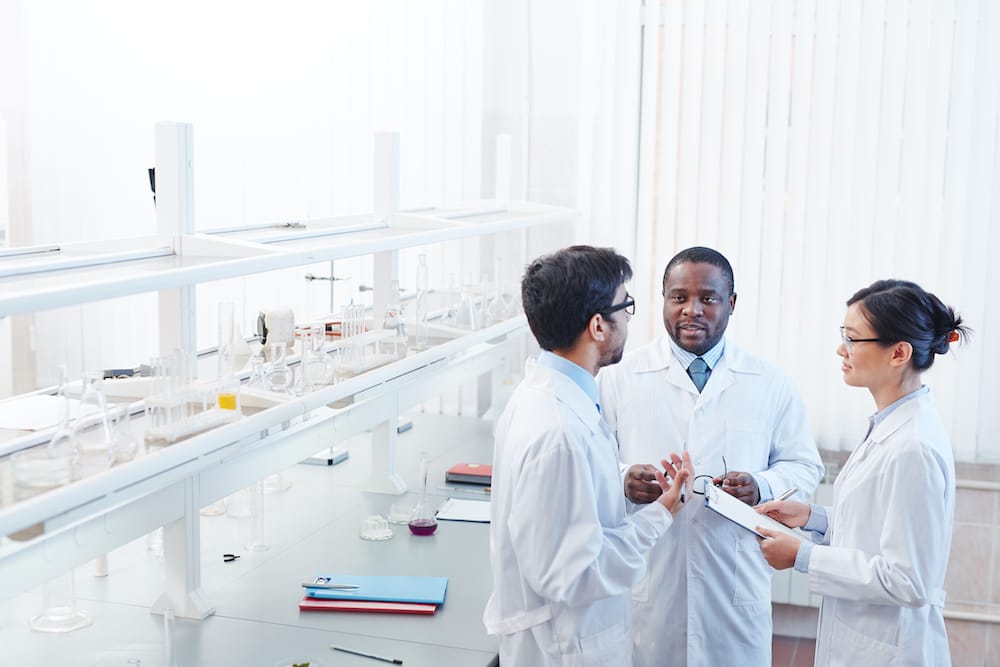
During the COVID-19 pandemic, the world has developed a renewed interest in, and placed an emphasis on, diagnostics. As a result, new companies and laboratories are being established across the U.S. to support the need for diagnostic testing.
In some cases, companies are building brand new facilities from the ground up, while others are setting up diagnostic workflows in biotechnology incubators or other pre-existing laboratory infrastructures. No matter the approach, there are three critical considerations to keep in mind from the outset to ensure a streamlined, successful effort.
Choosing a Specialty and Developing a Test Menu is the First Step
This may seem obvious, but if you are planning to build a new laboratory, you should have a very specific game plan regarding the specialty you will serve based on your anticipated client base of providers. As a simple example, if you plan to support COVID-19 testing, then your laboratory needs to decide if it will perform molecular-based testing and/or antibody-based testing, or both. Defining these analytes is a critical first step in setting up a diagnostic testing laboratory on time and within budget. The test menu should be defined in collaboration with key stakeholders with deep expertise of the market. Your Laboratory Director is one of the first stakeholders you should engage once you have your testing specialty determined. This person should be highly qualified and have many years of experience to help guide you through selection of your laboratory’s menu. He or she should also work in collaboration with a member of your marketing team to help you understand where commercial opportunities exist within your specialty.
After your test menu is established, your laboratory needs to determine the best technologies available to test for the selected analytes. You should consider the technical performance of each potential assay. In addition, you need to make solid predictions on sample volumes across time and be sure the testing platforms you select can meet your short-term and long-term needs.
As you tackle these early key decisions, you will make significant strides toward defining the commercial focus of your laboratory and the workflows that will run within it.
Your Quality Management System Needs to Meet the Demands of Your Laboratory
A key aspect of building a new diagnostic laboratory is establishing a solid foundation for quality. To set your laboratory up for success, ensure its Quality Management System (QMS) is compliant with Clinical Laboratory Improvement Amendments (CLIA) regulations and sufficiently robust to meet the demands of your laboratory and client base. The specific requirements that apply to your laboratory are defined by the complexity and type of testing that it will perform. However, in general, the QMS for all diagnostic testing laboratories can be divided into four sections—General Systems, Pre-Analytic, Analytic, and Post-Analytic.
- The General Systems phase encompasses aspects such as patient confidentiality, chain of custody, communication and complaints, personnel training and competency, proficiency testing, quality assessment, document and records retention and control, and safety. If your laboratory is focused on COVID-19 testing from the outset, be sure to plan according to relevant safety guidelines during the early phases of your laboratory build.
- The Pre-Analytic phase encompasses all aspects of diagnostic testing from the point of specimen collection up to specimen analysis. The laboratory should have procedures in place to define specimen collection, handling, shipping, receiving, and accessioning.
- The Analytic phase of testing must have a supporting procedure manual that defines the step-by-step process of specimen analysis, test performance verification, instrument maintenance and calibration, and quality control.
- The Post-Analytic phase procedures must include systems for high-quality test report generation, and delivery and procedures for generating amended reports.
The QMS defines the policies and procedures that will direct the day-to-day operations of your laboratory and ensure high quality across the testing process. No matter how strong your initial QMS is, be sure to include periodic management reviews of all aspects of the QMS to ensure it can grow with your laboratory and your company.
Your LIMS Selection Plays a Major Role in Your Laboratory’s Success
Another critical item for any new laboratory is your Laboratory Information Management System (LIMS). This software system is an essential tool to ensure standardization of your laboratory’s workflow, a complete audit trail of all testing activities, and aggregation and centralization of all data generated by your laboratory. You can think of the LIMS as a platform to encapsulate and facilitate all of your laboratory’s activities across the testing cycle.
The LIMS you select will impact your laboratory and its success for years to come. For that reason, your laboratory should budget sufficient time to review commercially-available LIMS options and conduct a thorough selection process. After the selection is made, your laboratory should work with your selected LIMS partner to ensure the lab’s requirements are defined and lead your laboratory through the implementation cycle. After the LIMS has been configured for your laboratory’s needs, your LIMS partner should conduct training with your lab team and ensure your laboratory is sufficiently supported now and into the future.
Get Started With ApolloLIMS
In the early phases of a laboratory build, be sure to reach out to a team of experts in laboratory diagnostics. The ApolloLIMS team has deep experience with all types of labs and will work with your laboratory operations team to ensure your laboratory’s success from its very first days.
Contact our team to learn more about the Apollo Alliance.


